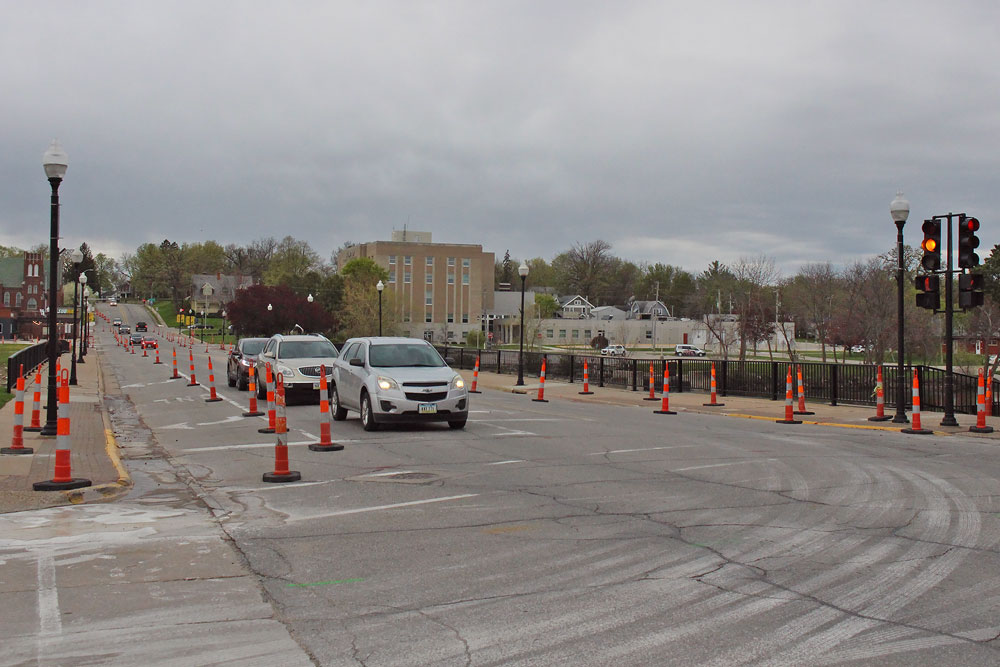EDITORIALS ELSEWHERE Sales-tax equity long overdue
EDITORIALS ELSEWHERE
Sales-tax equity long overdue
Scan those Christmas packaged and do a quick count of how many of those gifts came from online purchases. If you’re like most Americans, the number of items you bought online is larger than last year. And that trend is likely to continue.
Thanksgiving weekend, the traditional kickoff to holiday shopping, reached a tipping point this year. Slightly more people shopped online (103 million) than in stores (102 million), according to the National Retail Federation.
Adobe tracked 180 million visits to 4,500 retail websites. It put Black Friday online sales at $2.6 billion — a 14 percent increase over last year. Amazon put its Black Friday year-overyear increase at 20 percent.
Meanwhile, traffic at malls and other retailers was decent, but not crazy — nowhere near the chaos it has been in the past.
That no one is getting trampled over a $40 flat-screen television is the good news. But less foot traffic is bad news for brick-and-mortar retailers.
While you might be tickled to sit home by the fire, Christmas shopping from your iPad, it’s a transition that doesn’t bode well for stores. That’s business. That’s competition. That’s the American way.
However, one pillar of competition is that it’s fair competition. The competition between online and brick-and-mortar retailers is not fair concerning their respective tax obligations.
Mom-and-pop shops and even brick-and-mortar stores have plenty of obstacles confronting them. They should at least get a fair shake when it comes to taxes.
The way the law works now, online merchants have to collect sales taxes only when they have a physical presence in the state where the purchaser lives. Meanwhile, those stores at the shopping mall or downtown district? They, of course, have to collect taxes on every sale, every time.
For years, Congress has had before it legislation that would bring parity to the equation. Just this month, two Republican leaders inserted into the massive spending bill a measure that would force online retailers to collect local and state sales taxes.
Rep. Jason Chaffetz, R-Utah, and Sen. Lamar Alexander, R-Tenn., sponsored the measure that they say would bring the tax laws in line with the way contemporary society works. But once again, the measure failed to get traction and was removed from the omnibus spending bill.
For decades, courts have ruled that paying sales tax is related to costs incurred by the public that supported the transaction. Stores in town, for instance, use city streets and rely on city fire, police and water services for commerce. Sales tax goes to pay for those services. A catalog company with no physical presence doesn’t use the same services. Nor does an online retailer.
That was the school of thought when the big sellers without a physical presence were Lands’ End and L.L. Bean. The law wasn’t written for a behemoth like Amazon, which is gobbling up market share.
The laws need to better reflect the world in which we live. Even Amazon agrees. Iowa is among two dozen states still missing out on sales-tax revenue through Amazon. Items shipped by Amazon to Wisconsin, Illinois or 24 other states are subject to sales tax in accordance with state law. For its part, Amazon would like to see the sales tax it pays simplified and uniform. That’s reasonable. Tracking sales-tax obligations and laws in every state is unwieldy for online retailers.
Though there are financial impacts for government and consumers with this proposal, it is less about revenue and more about fairness. If we’re concerned about the burden on consumers, then reduce the sales tax that physical retailers must collect and pass on to government. Whatever the tax rate, make it consistent between physical stores and online outlets.
Brick-and-mortar retailers are the people who live in our community, pay property taxes and provide local jobs. It isn’t fair that government should place them at a competitive disadvantage. It’s high time that federal legislation levels the playing field for everyone.
— Dubuque Telegraph Herald. Dec. 25









Social Share